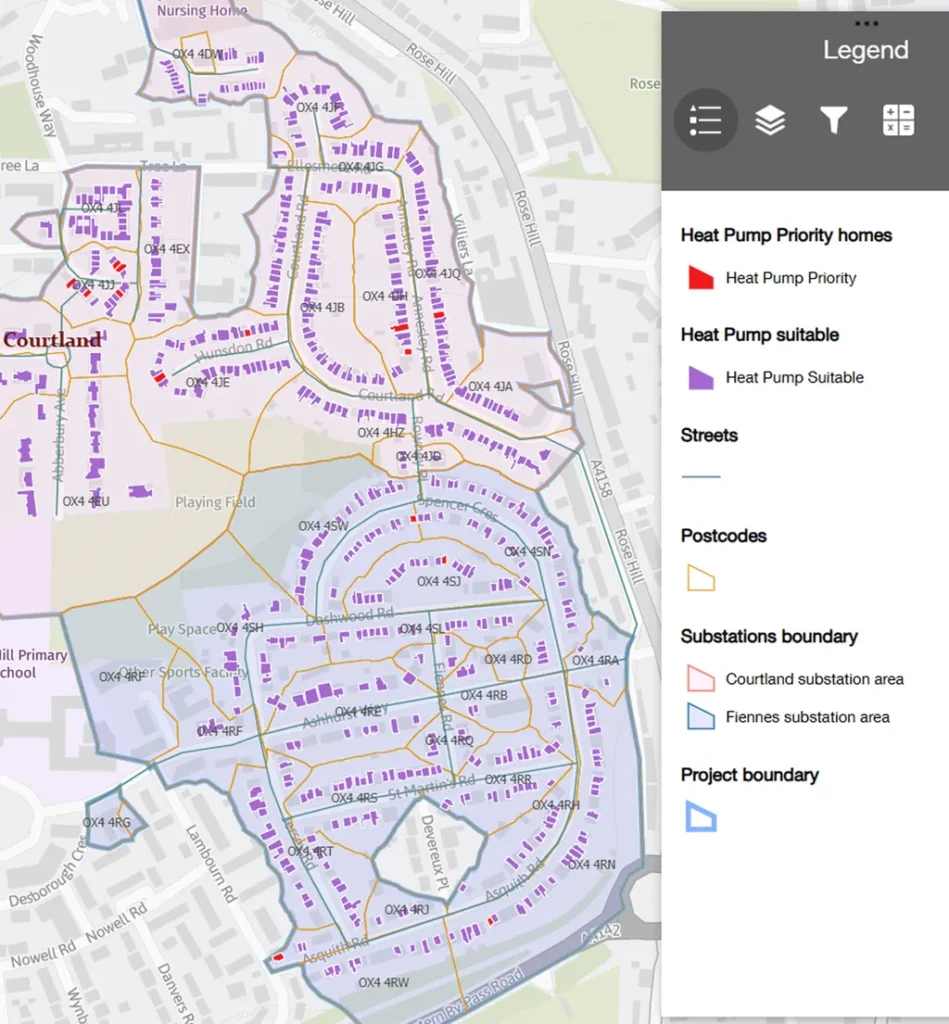In the quest to decarbonize residential heating, a groundbreaking study led by Rajat Gupta from the Low Carbon Building Research Group at Oxford Brookes University has introduced a novel approach to accelerate the deployment of heat pumps in high-density areas. Published in the journal ‘Buildings & Cities’ (translated as ‘Buildings and Cities’), the research presents a local area energy mapping (LEMAP) methodology that could significantly reshape the energy sector’s strategy for achieving net-zero targets.
The LEMAP approach integrates a diverse range of datasets, including energy use, building characteristics, socio-economics, digital engagement, and local electricity distribution. This hyper-local methodology evaluates the technical feasibility and readiness of dwellings for heat pump deployment, bridging the gap between technical potential and practical adoption.
Gupta and his team studied 865 dwellings in a suburban area of Oxford, UK, conducting their analysis in three stages: local grid loading, technical suitability, and household capability. The findings revealed that over 600 dwellings (71%) were technically suitable for heat pumps. However, only a small proportion demonstrated strong capabilities across all three dimensions—financial, social, and digital—highlighting the need for targeted interventions to ensure successful heat pump deployment.
“Many dwellings were technically suitable, but we found that households with high financial and social capabilities often had lower digital capabilities,” Gupta explained. “This suggests a need for digital literacy support to enable the effective adoption of smart heat pump technologies.”
The study’s policy relevance is substantial, as heat pumps play a crucial role in strategies to decarbonize residential heating. The local area energy planning tool presented in the research improves the precision of energy planning and fosters collaboration between local authorities, electricity network operators, and communities. By integrating technical, socio-economic, and demographic data, the tool connects policy objectives with dwelling-specific decisions, enabling a more comprehensive approach to heat pump deployment.
The findings from this research have already been put into practice by the local council and its partners in the Clean Heat Streets project. Over 100 in-home consultations and 30 heat pump installations have been carried out to date, demonstrating the immediate commercial impacts of this research.
As the energy sector continues to evolve, the LEMAP approach could shape future developments by providing a scalable and data-driven methodology for heat pump deployment. This research offers actionable insights for replicating place-based heat pump deployment strategies in other regions, supporting the transition of building stock towards net-zero targets.
In an industry where precision and collaboration are key, Gupta’s research provides a compelling blueprint for accelerating the energy transition, making it a must-read for professionals in the energy sector.

